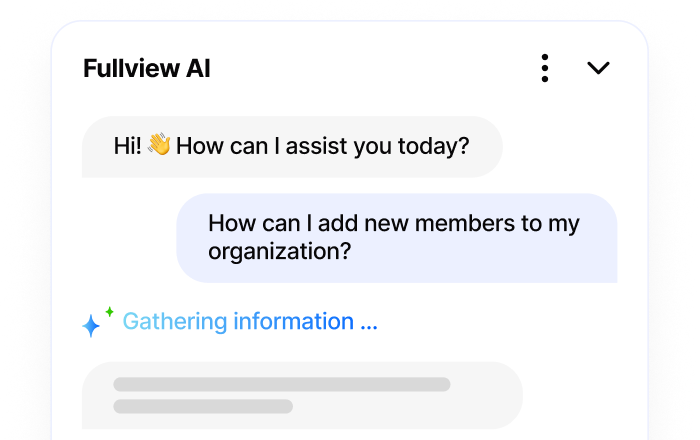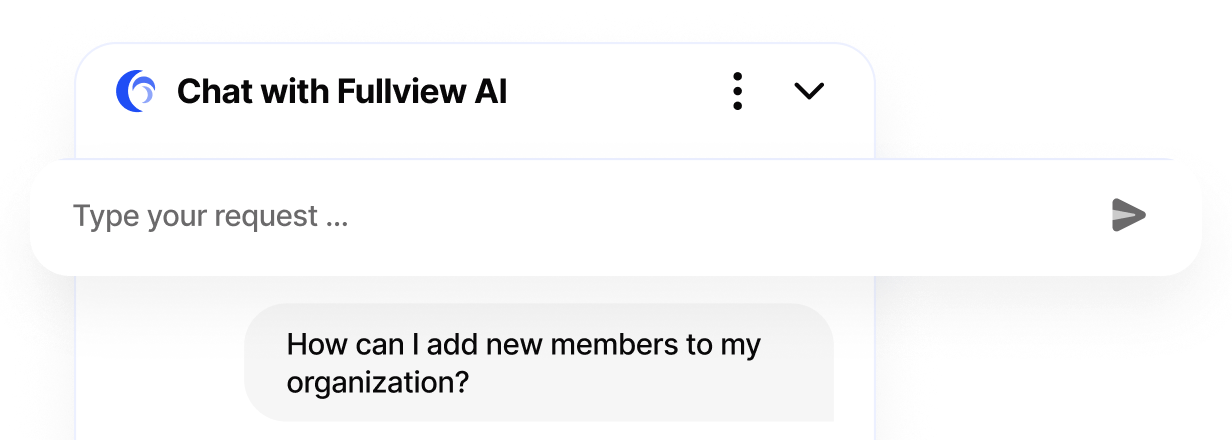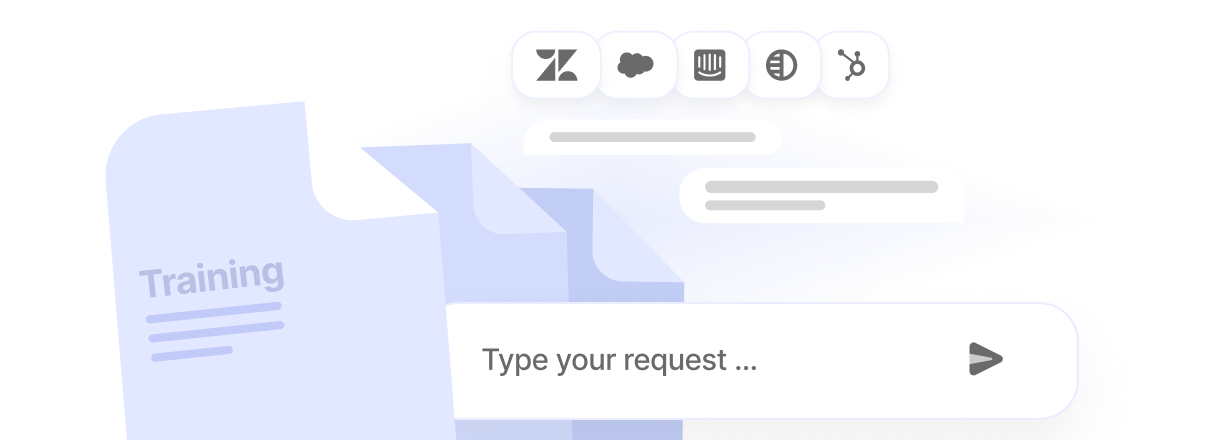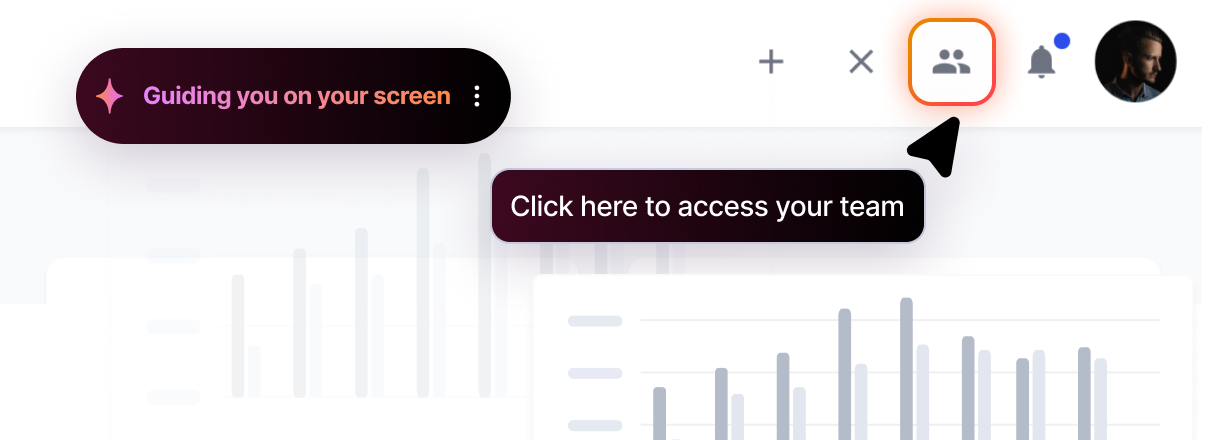Introduction to AI Agents in 2025
AI agents crossed the chasm somewhere around late 2024. By 2025, 60% of companies run them in production, and the market's headed toward $50.31B by 2030 (growing at 45.8% annually). What started as pilot projects became core infrastructure.
Here's the distinction that matters: AI agents aren't just smarter chatbots. An AI agent is autonomous software that executes actions, coordinates with other systems, and pursues goals using data and prompts. These systems make decisions and take action without waiting for human approval at every step.
They've infiltrated pretty much every business function:
- Customer service teams use them to resolve tickets and visually guide users through complex interfaces
- Sales departments automate prospecting, qualification, and the endless CRM updates nobody wants to do
- Marketing teams generate campaigns and personalize content at scale
- Development teams get code suggestions, tests, and documentation without asking
- Finance processes invoices and reconciliations while catching errors humans miss
- HR screens candidates and handles onboarding paperwork automatically
- Operations optimizes supply chains and logistics in real-time
Companies that deployed agents in 2024 saw speed-to-market increase 23% (median). 40% of organizations now budget over $1 million for AI agents. We're past the "should we?" phase. Now it's about picking the right agent for the job.
Key Criteria for Evaluating AI Agents by Use Case
Different agents need different capabilities. A support agent handling customer emergencies needs high autonomy. A finance agent processing payments might need more oversight for compliance. Here's what actually matters when comparing options:
Autonomy level: How much can it do without checking in? Support agents should resolve most issues solo. Finance agents might need approval workflows built in.
Domain expertise: Does it understand your world? Support agents need product knowledge, sales agents need to read buyer signals, development agents need architecture context. Generic agents struggle with specialized work.
Integration requirements: What does it need to connect to? Support agents live in helpdesks and CRMs. Marketing agents need campaign tools. Finance agents need ERP access. If it can't talk to your core systems, it won't work.
Decision-making authority: What can it actually do versus just recommend? Some agents can execute transactions. Others make suggestions for human approval. Match this to your risk tolerance and compliance requirements.
Scalability: How will usage grow? Customer support might 10x overnight during a launch. Financial reporting happens monthly. Infrastructure needs differ wildly.
Compliance and security: Regulatory requirements vary by function. Customer-facing agents dealing with personal data face strict privacy rules. Internal agents have different constraints but still need proper access controls.
Performance metrics: You need to measure what matters. Support teams track resolution time and CSAT. Sales tracks conversion rates. Development looks at code quality and deployment frequency. Pick agents that report on metrics you actually care about.
Understanding these helps you figure out where agents deliver the biggest return and which use cases to tackle first.
Fullview: Best AI Agent for Customer Service
Fullview built an AI agent specifically for companies drowning in complex B2B support tickets. What makes it different: it's dead simple to build, delivers accurate conversational answers, and can actually see your application to guide users visually when text alone isn't enough.
Easy to build, no coding required. Connect your knowledge sources (help center, docs, FAQs) and Fullview's AI learns your product. Train it on any website, upload files, or connect directly through Intercom, Zendesk, or Salesforce integrations. You can have a working agent answering questions in hours, not weeks. Test everything in playground mode before going live.
Accurate conversational AI that actually understands context. The agent handles the same complex support questions your team fields daily. It pulls answers from your knowledge base using RAG (Retrieval-Augmented Generation), meaning responses are grounded in your actual documentation. For most questions, the text-based conversation is all customers need. Clear, accurate answers delivered instantly.
Visual guidance when "just click here" doesn't cut it. Here's where Fullview goes beyond traditional chatbots. For complex workflows where users get stuck, the agent can show them exactly what to do with on-screen overlays, highlights, and step-by-step visual walkthroughs. When someone asks "how do I export my data?" the agent answers in text, then offers to show them visually if they need it. Complex interfaces with hundreds of features suddenly become navigable.
What it handles:
- Autonomous 24/7 conversational support for common questions
- Visual overlays guiding users through multi-step workflows when needed
- Knowledge base connections pulling from help centers and internal docs
- Seamless handoff to human agents with full context (including session recordings and console logs)
- Works standalone with its own widget or integrates into existing helpdesks
Security and compliance matter here. Fullview runs on AWS infrastructure with GDPR compliance, Data Processing Agreements, and privacy-first architecture. For financial services companies and healthcare organizations handling sensitive customer data, this stuff isn't optional. Every interaction gets encrypted, access is role-based, and audit logs track everything.
Teams using Fullview report 40-60% faster resolution times, 35-50% fewer tickets, and higher CSAT scores. Support agents spend less time answering repetitive questions and more time solving problems that actually need human judgment.
When Fullview makes sense:
Support ticket volume exceeds what your team can handle, repetitive "how-to" questions eat up agent time, resolution times need improvement without adding headcount, after-hours support has gaps, customer onboarding requires extensive hand-holding, or your product's complexity makes basic self-service difficult.
Salesforce Agentforce: Best AI Agent for Sales Automation
Salesforce Agentforce 2.0 acts like a virtual sales rep who handles all the stuff your actual reps hate doing. Data entry, CRM updates, follow-up coordination, deal tracking.
Automatic CRM updates happen in real-time as conversations progress. Lead scoring analyzes prospect behavior to surface sales-ready opportunities. Email sequences personalize themselves based on prospect actions. Deal intelligence predicts close probability using historical patterns.
The big advantage if you're already using Salesforce: native integration with Sales Cloud, Service Cloud, and Marketing Cloud. Setup is straightforward and data flows naturally.
Sales teams report 30-45% less time on admin, 25-35% more meetings booked, and 15-20% better win rates.
Works best when: your team already lives in Salesforce, CRM data quality makes pipeline visibility unreliable, or reps spend more time updating records than talking to prospects.
Jasper: Best AI Agent for Marketing Content Creation
Jasper solves the content production bottleneck. Marketing teams need blog posts, social content, email campaigns, and ad variations at a pace humans can't sustain.
The brand voice training matters more than you'd think. Feed it your existing content and style guides. It learns how your company sounds and keeps that consistent across everything. Campaign workflows handle complete production from brief to finished assets. Need a product launch? It generates blog posts, social captions, email sequences, and ad copy as a coordinated package.
It connects to WordPress, HubSpot, and social schedulers, so finished content flows directly into your publishing tools.
Marketing teams report 40-60% faster content production, 3-5x higher output volume, and 25-35% better engagement through improved personalization.
Fits when: content production can't keep up with channel opportunities, your team's stretched thin, brand voice varies by writer, or campaign launches get delayed waiting for content.
GitHub Copilot: Best AI Agent for Software Development
GitHub Copilot sits inside your IDE and suggests code as you type. Functions, boilerplate, tests, documentation. It reads your codebase to understand your architecture and patterns, then generates context-aware completions.
Start typing a function name and it offers the complete implementation. Write a comment describing what you need and it generates the code. Need tests? It writes those too. Multi-language support covers Python, JavaScript, TypeScript, Ruby, Go, and dozens more. Works natively in VS Code, JetBrains, and other popular editors.
The repository context makes it smarter than generic code generators. It understands your specific codebase and follows your team's patterns.
Development teams report 30-50% faster feature development, 40-60% less time writing boilerplate and tests, and 25-35% quicker code reviews.
Makes sense when: development velocity can't meet roadmap demands, junior developers need help learning best practices, or test coverage lags behind features.
Tableau Pulse: Best AI Agent for Data Analysis & Business Intelligence
Tableau Pulse democratizes data access. Non-technical people can ask questions in plain English and get actual answers instead of waiting days for an analyst.
Natural language queries work surprisingly well. "What drove the revenue increase last quarter?" returns insights with explanations. "Which regions underperformed?" shows the data and tells you why. Personalized metrics deliver relevant insights based on user roles. Smart narratives explain what changed and why in business-friendly language, not statistical jargon.
Mobile-first design means insights reach people wherever decisions happen. Integration with existing Tableau dashboards leverages current investments.
Teams report 50-70% less time analysts spend answering routine questions, 30-40% faster decision-making, and 40-60% more people actually using data.
Fits when: executives need faster insights for decisions, analysts get overwhelmed by repetitive requests, non-technical teams can't self-serve data, or opportunities get discovered too late to act.
Paradox (Olivia): Best AI Agent for HR & Recruiting
Paradox built an AI assistant called Olivia that handles the painful parts of recruiting. Screening candidates, scheduling interviews, answering the same questions 500 times.
Conversational screening happens through text-based chats that feel natural. Candidates answer questions on their phone anytime, 24/7. Interview scheduling coordinates calendars automatically across candidates and hiring managers. No more email tennis. Onboarding automation sends documents, collects signatures, tracks completion.
Multi-language support handles global candidate pools. ATS integration syncs with Workday, Greenhouse, and iCIMS.
Recruiting teams report 40-60% faster time-to-hire, 70-80% less time spent on scheduling coordination, and 30-45% better candidate experience scores.
Works when: high-volume hiring overwhelms capacity, interview scheduling creates coordination nightmares, candidate response times lag and top talent accepts other offers, or after-hours questions go unanswered.
Vic.ai: Best AI Agent for Finance & Accounting Automation
Vic.ai tackles accounts payable. Manual invoice processing, endless data entry, chasing approvals. It autonomously processes invoices, matches them to POs, codes them correctly, and routes them for approval without human review.
OCR technology captures data from invoices in any format. Smart approval routing sends invoices to the right people based on amount and category. Duplicate detection prevents double payments automatically. GL coding learns your accounting structure and categorizes transactions accurately.
ERP integration syncs with NetSuite, Sage Intacct, QuickBooks, and Microsoft Dynamics. Audit trails maintain complete documentation for compliance.
Finance teams report 80-90% less invoice processing time, 70-80% less manual data entry, and 50-60% better early payment discount capture.
Makes sense when: invoice volume overwhelms AP capacity, manual data entry creates bottlenecks, early payment discounts get missed, or month-end close gets delayed by outstanding AP items.
Comparison of Top AI Agents by Use Case
Pricing and Deployment Considerations for AI Agents
AI agent pricing varies wildly depending on what you're buying. Understanding the models helps you budget accurately and avoid sticker shock later.
Common pricing structures:
Per-agent licensing charges monthly or annual fees per bot deployed. Simple to understand, predictable costs, but gets expensive when you need multiple agents.
Per-user pricing based on how many people interact with agents. Works well for internal tools, less so for customer-facing agents with unpredictable volume.
Usage-based models bill per conversation, message, or API call. Scales naturally with adoption but makes budgeting harder. Watch for volume tiers that change unit economics.
Tiered plans offer feature bundles at set price points. Predictable but you might pay for features you don't need.
Custom enterprise contracts get negotiated based on volume and requirements. Gives you flexibility but requires procurement cycles.
40% of businesses now budget over $1 million for AI agents in 2025, which reflects both the technology's maturity and its strategic importance. Organizations deploying multiple agents across departments typically see higher upfront costs but faster ROI through consolidated vendor relationships and operational efficiency.
What affects deployment costs:
Technical requirements including infrastructure and integration complexity. Some agents need dedicated servers or specific environments.
Scaling as usage grows beyond initial deployment. Make sure pricing scales reasonably or you'll face renegotiations.
Training and onboarding time for admins and end users. Factor in lost productivity during rollout.
Ongoing maintenance including updates, monitoring, and optimization. Monthly subscription isn't the total cost.
Support availability and response times for critical issues. Check SLAs before signing.
Data residency requirements particularly for global operations. Some regions require local hosting.
No-code versus custom development based on use case complexity. No-code is faster but less flexible.
Financial services and healthcare face additional compliance costs that affect total ownership costs. Choosing platforms with built-in security and compliance features reduces long-term expenses compared to adding controls later.
Security and Compliance in AI Agent Adoption
AI agent security means identity-first controls, behavior monitoring, and anomaly detection that protect your systems and data from unauthorized access, manipulation, and misuse. You're giving autonomous software access to sensitive systems. Security can't be an afterthought.
Regulatory frameworks in 2025 mandate specific controls:
GDPR requires explicit consent, data minimization, and the right to explanation for automated decisions. If your agent makes decisions affecting people in the EU, this applies.
ISO 42001 provides standards for AI management systems including governance and risk controls. Useful for demonstrating due diligence.
NIST AI RMF offers guidelines for trustworthy AI development and deployment. US federal contractors often need this.
CCPA and state privacy laws mandate transparency and data protection for AI interactions with California residents (and increasingly other states).
Industry regulations like HIPAA, PCI-DSS, and SOC 2 require additional safeguards depending on your sector.
Threats you need to defend against:
Prompt injection attacks manipulate agent behavior through crafted inputs. Attackers find ways to make agents do things they shouldn't.
Token compromise exposes API keys and authentication credentials. One leaked key can grant access to everything.
Model poisoning corrupts training data to alter agent responses. Subtle changes can bias decisions or leak information.
Impersonation attacks use stolen credentials to access systems. Agents with broad access make attractive targets.
Data leakage through uncontrolled information sharing in responses. Agents sometimes reveal information they shouldn't.
Controls that actually work:
Multi-factor authentication for all agent access points. No exceptions.
Role-based access controls limit actions based on user permissions. Principle of least privilege applies to agents too.
Encryption for data at rest and in transit. Standard practice but still necessary to mention.
Activity logging with tamper-proof audit trails. You need to know what agents did and when.
Anomaly detection identifies unusual behavior patterns. Catches attacks and misconfigurations.
Regular security assessments and penetration testing. Assume someone will try to break it.
Incident response procedures for security events. Know what you'll do before things go wrong.
If you're in a regulated industry, prioritize platforms with security certifications, compliance documentation, and transparent data handling. The cost of a security incident dwarfs the investment in proper controls.
How to Choose the Right AI Agent for Your Business Needs
Picking an AI agent requires matching capabilities to actual requirements, not just buying what sounds impressive in demos.
Start with the problem, not the technology. What specific issue needs solving? Support tickets overwhelming your team? Sales reps drowning in CRM updates? Content production can't keep pace? Name the pain point explicitly. "We need AI" isn't specific enough.
Map your must-have features. What does the agent absolutely need to do versus nice-to-have capabilities? Integration requirements matter here. If it can't talk to your core systems, it won't work no matter how impressive the features are. Also consider scalability requirements and analytics depth.
Shortlist at least three options. Research platforms matching your use case and requirements. Request demos and trial accounts. Talk to reference customers, especially ones in similar industries dealing with similar problems. You'll understand the range of approaches and spot gaps in vendor pitches.
Get legal, compliance, and security involved early. Review security certifications, compliance documentation, and data handling practices before you're too far down the procurement path. These teams can kill deals late in the process if they haven't been consulted. Better to surface issues upfront.
Do the math on total cost of ownership. Compare licensing, implementation, training, and ongoing maintenance costs. Look at integration complexity and resource requirements. Some "cheap" solutions become expensive when you factor in customization and support costs.
Involve actual stakeholders from IT, operations, compliance, and end-user teams. Their insights prevent surprises during implementation and increase adoption rates. The support team manager who'll actually use the thing should have input before you sign contracts.
Creating a decision matrix that weights factors by importance helps teams make objective comparisons when features, pricing, and capabilities vary significantly across options. Just don't let the spreadsheet become more important than talking to actual users.
Best Practices for Successful AI Agent Implementation
Deploying AI agents effectively requires more than just picking the right platform. These practices maximize adoption speed, impact, and ROI.
Roll out gradually, not company-wide on day one. Start with a limited user group or single use case. This gives you space to identify issues, refine agent behavior, and demonstrate value before scaling. Trying to boil the ocean creates chaos.
Actually train people. Both administrators and end users need to understand how to leverage agent capabilities. Training reduces resistance and accelerates time-to-value. Don't assume people will figure it out.
Keep humans in the loop for oversight. Most agent deployments in 2025 still involve human oversight for good reason. Design workflows that allow human intervention when agents encounter edge cases or ambiguous situations. Full autonomy sounds great until something goes wrong.
Measure what matters consistently. Track resolution time, containment rate, customer satisfaction, cost per interaction. Use data to identify improvement opportunities and justify continued investment. "It seems to be working" isn't good enough for budget discussions.
Build robust knowledge bases. Agent quality depends on the information they can access. Invest in documentation, help articles, and internal resources that agents reference. Poor knowledge bases produce poor agent responses. Garbage in, garbage out applies here.
Plan for continuous optimization. Agent performance improves through iteration. Establish processes for reviewing conversations, identifying gaps, and refining responses based on real interactions. Set-it-and-forget-it doesn't work.
Handle change management thoughtfully. Communicate benefits clearly to teams affected by automation. Address concerns about job security honestly. Emphasize how agents handle routine work while humans focus on complex problems. Pretending automation won't change jobs creates resentment.
Organizations that deployed AI agents saw speed-to-market increase 23% (median) after implementation, but results vary based on execution quality. Following these practices consistently improves outcomes.
Frequently Asked Questions
What features should businesses prioritize when selecting AI agents?
Start with integration. If it can't connect to your existing tools, nothing else matters. After that: security compliance for your industry, automation flexibility so you can adapt as needs change, analytics showing what's actually working, ongoing support when things break, and ease of use for both technical and non-technical staff. The relative importance shifts based on your use case, industry regulations, and team capabilities.
How do AI agents integrate with existing workflows and software?
Most offer REST APIs, pre-built integrations, and workflow connectors for popular platforms. Leading agents have native integrations with major business systems like Salesforce, Zendesk, and Microsoft 365. This reduces implementation complexity and lets agents access relevant data in real-time. Check integration documentation before demos to make sure your specific tools are supported.
Are there AI agents suitable for teams without programming expertise?
Yes. No-code and low-code platforms let teams deploy sophisticated agents without extensive programming skills. Platforms like Jasper for marketing and Paradox for recruiting provide visual workflow builders, pre-built templates, and intuitive interfaces that business users manage independently. You don't need a developer on speed dial.
What are the security and privacy considerations when deploying AI agents?
Make sure your agent complies with relevant regulations like GDPR. Verify it uses secure authentication and storage, implements role-based access controls, encrypts data in transit and at rest, and includes real-time monitoring for anomalies. Check that platforms maintain security certifications and provide audit trails for all agent activities. If you're in a regulated industry, this stuff isn't negotiable.
How can AI agents improve customer engagement and operational efficiency?
They automate routine tasks, personalize interactions based on customer context, and provide 24/7 support without human involvement. This means faster response times, higher customer satisfaction, and more productive teams as human agents focus on complex issues requiring judgment and empathy. Organizations typically see 20-50% reductions in support costs while maintaining or improving service quality. The key is matching the right agent to the right use case.
Related Resources:
- Fullview AI Agent Platform
- Customer Support Solutions
- Alternatives to Forethought
- Alternatives to Decagon
- Alternatives to Intercom
- Best Call Center Software
- Customer Onboarding Best Practices
- Fullview for Financial Services
- Integration Capabilities
References:
- G2 Report Reveals AI Agents Are Delivering the Growth Generative AI Promised - businesswire.com
- AI Agents Market Analysis - indatalabs.com
- Are You Generating Value from AI? The Widening Gap - bcg.com
- AI Agent Market Landscape - obsidiansecurity.com
- 2025: Year of AI Agents - alpha-sense.com
- Best AI Agents - lindy.ai
- Best AI Agents 2025 - tredence.com
- Top AI Agents - zendesk.com








.webp)
